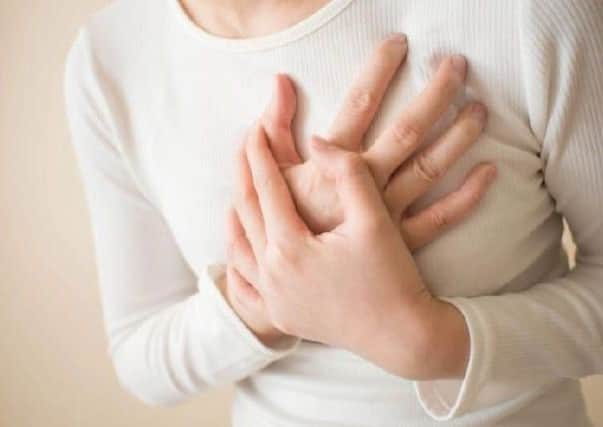Women ‘suffer same symptoms as men during heart attacks’


The analysis calls into question a long-held medical myth that women tend to suffer unusual or “atypical” heart attack symptoms and emphasises the need for both sexes to recognise and act on the warning signs.
Incorrectly assuming that women having a heart attack suffer different symptoms from men could lead to misdiagnosis, delayed treatment and less intensive medical interventions being offered, experts said.
Advertisement
Hide AdAdvertisement
Hide AdPrevious BHF research has shown the resulting differences in care for women were estimated to have contributed to at least 8,200 avoidable deaths in the past decade.
In the new study, published in the Journal of the American Heart Association, researchers at the University of Edinburgh recorded the symptoms of people attending the emergency department at Edinburgh Royal Infirmary who had a blood test called a troponin test. This is used when doctors suspect a person is having a heart attack.
Doctors ordered the troponin test for 1,941 people between June 2013 and March 2017. Of this group, 274 people – 90 women and 184 men – were diagnosed as having a type of heart attack known as an NSTEMI – the most common type, which occurs when the coronary artery is partially blocked.
Chest pain was the most common symptom for both men and women, with 93 per cent of both sexes reporting this symptom. A similar percentage of men and women reported pain that radiated to their left arm. More women had pain that radiated to their jaw or back and women were also more likely to experience nausea in addition to chest pain (33 per cent versus 19 per cent).
Less typical symptoms such as heartburn, back pain or pain that was burning, stabbing or similar to that of indigestion were more common in men than women (41 per cent in men versus 23 per cent in women).
Amy Ferry, a cardiology research nurse at the university, said: “Our concern is that, by incorrectly labelling women as having atypical symptoms, we may be encouraging doctors and nurses not to investigate or start treatment for coronary heart disease in women.”